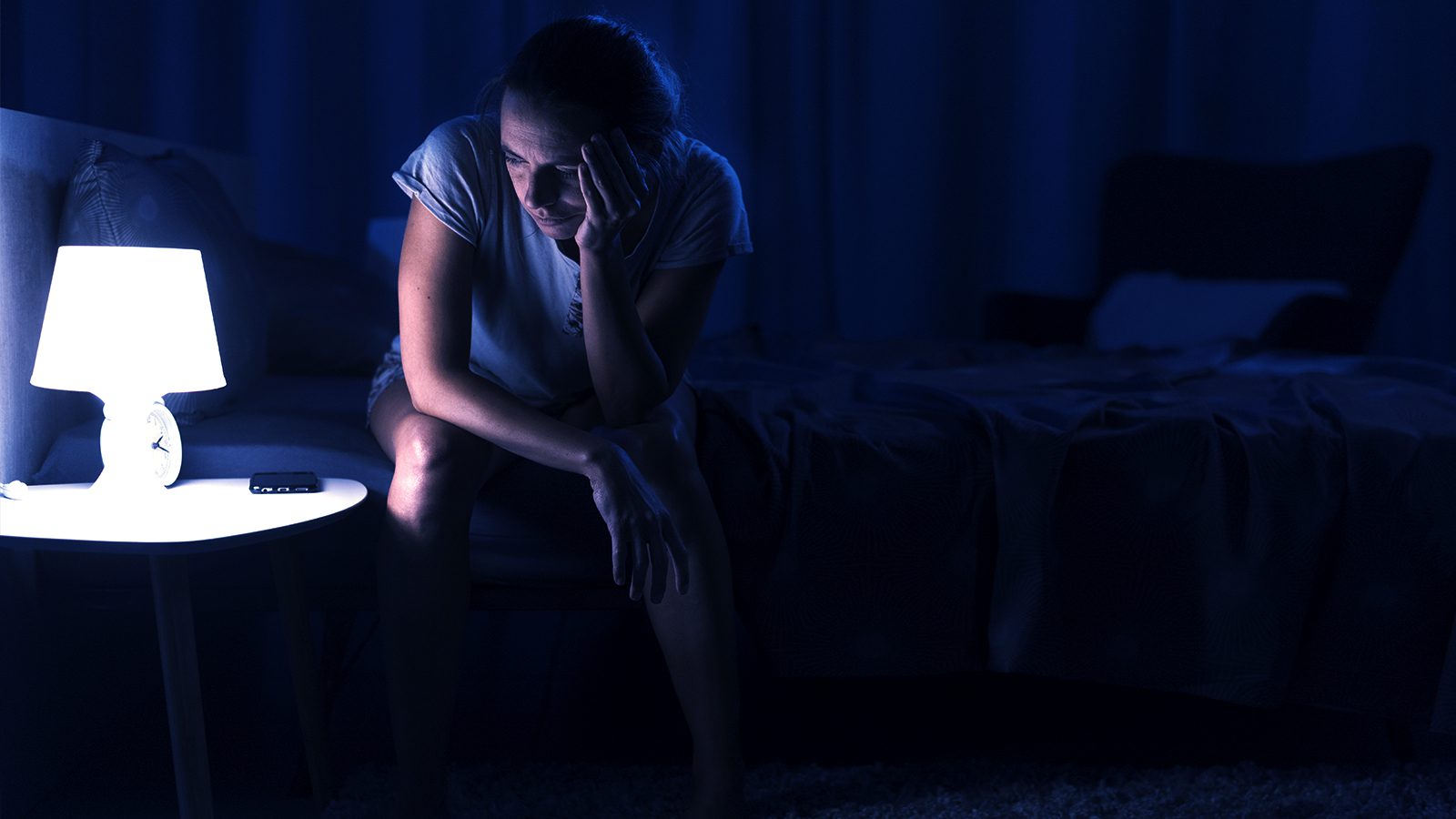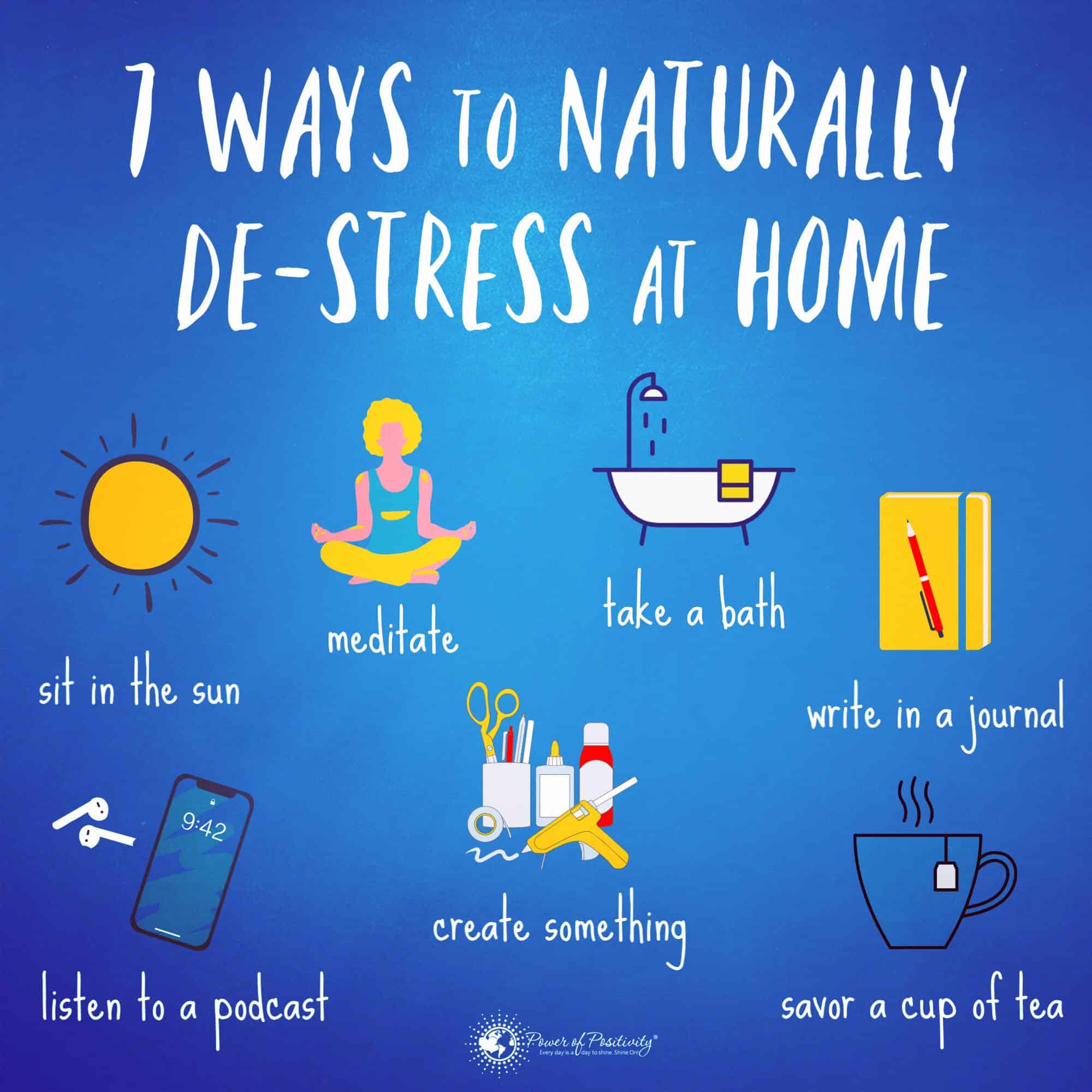Lack of sleep is linked to several chronic diseases. You may feel you can catch up on your sleep over the weekends or holidays, but sleep isn’t a luxury. It’s a necessity for your good health. Individuals who continually lose sleep end up with health problems. Here are four diseases connected to lack of sleep and sleep disorders like insomnia.
1 – Lack of Sleep Can Cause Depression
According to the CDC, one-third of American adults sleep less than the recommended seven to eight hours per night. If you do not get enough sleep, you’re at a higher risk for a car accident, work mistakes, and injuries. One of the health risks of a lack of sleep is depression. Doctors know that sleep is a symptom of depression. They’ve also found when they treat sleep apnea, and a person is sleeping well, their depression symptoms decrease. If you struggle with depression, you may not have realized how important it is for you to get enough sleep. Sleep helps improve your mood and reduce your depression.
Ideas to Beat Sleeplessness
Here are some suggestions to help you sleep better if you feel sad and depressed.
- Keep your bedroom as dark as possible: Use blackout curtains to darken your room at night. If the street lights bother you, try double blackout curtains to block out all the light.
- White noise: Make white noise with a white noise machine or fan to block outside noises. Noise during the night could cause sleeplessness.
- Update your mattress: It can disrupt your sleep if it is old and lumpy.
- Keep a bedtime routine: All living organisms have circadian rhythms that regulate your biological clock. Little things like changing daily routines can interfere with your circadian rhythm. Your sleep is affected when this rhythm gets disrupted. Having a set time to go to bed and get up helps you stay in sync with this biological clock.
- Get up when you have insomnia: If you’re having difficulty staying asleep, it’s best to get out of bed. Then do something like read a book or listen to music for15 minutes. Then return to bed. This often resets your brain to allow you to sleep. If it doesn’t, try around fifteen minutes of reading and then go back to bed. Eventually, your body will calm down, and you’ll fall asleep.
- Avoid blue screens: Blue screens have overstimulated your brain. Avoid using your devices at least an hour before bed.
- Increase your exercise: Regular exercise helps decrease depression. This is because exercise stimulates your brain to release endorphins, that are a natural antidepressant which can improve your mood. Aim for thirty minutes of exercise every day.
- Get into the sunshine: Try to get outside every day. Sunlight increases your vitamin D, which improves your mood. Sunlight also helps reset your circadian rhythms.
2 – Obesity May Result from Insomnia
Lack of sleep or not sleeping long enough contributes to obesity. Insomnia changes your metabolism, which results in weight gain. This was especially true for kids and adolescents. Sleep is essential for kids’ development. If a child lacks sleep while growing up, the hypothalamus, that part of the brain that controls their appetite and metabolism, can’t develop correctly. This causes them to gain weight. Adults who get less than the recommended seven hours of sleep repeatedly struggle with weight gain plus a higher body mass index (BMI). This is because of several reasons:
- Insomnia or insufficient sleep increases your appetite: When you’re not sleeping, you have an enormous appetite. This is partly because your body is trying to compensate for lost energy. Also, when you’re not getting enough sleep, it affects your hormones that pick up your appetite. Plus, when you’re not sleeping, you crave high-fat foods and carbohydrates, which leads to weight gain.
- Lack of sleep leads to a lack of exercise: It goes without saying when you’re not sleeping well, you feel tired and lack the motivation to exercise. If you try to exercise, you’re likely to shorten the length of your physical routine because you’re too tired to finish. Not getting enough exercise increases your risk of gaining weight.
3 – Lack of Sleep Contributes to Cardiovascular Disease
Insomnia has been linked to a higher risk of cardiovascular disease conditions, such as:
- High blood pressure
- Stroke
- Irregular heartbeats (arrhythmia)
- Coronary heart disease
- Cardiovascular events
- A buildup of cholesterol plaque in your arteries
Doctors suggest that lack of sleep is a good indicator of a heart condition and even increases your death rate if you’re diagnosed with heart disease. It’s important to make sleep a priority. If you’ve tried all the conventional ways to get more sleep, and they haven’t worked, here are some strange but practical suggestions that might work for you.
How to Beat Insomnia
- Tell yourself not to sleep: If you suffer from insomnia. It’s suggested that if you lie in bed with your eyes open and refuse to go to sleep, you’ll relax. This is because you aren’t trying to sleep. There’s suddenly no pressure. Before you know it, you’ll fall asleep. It’s reverse psychology for your brain.
- Keep your feet warm: When you’re in bed; your body gets cool. Anecdotal reports suggest that putting a heating pad on your cold feet or wearing socks helps redirect the blood to your feet and warm them up.
- Eat cheese: Cheese has a lot of tryptophan which enhances sleep. Always avoid high-fat cheeses late at night because this cheese can have the opposite effect and keep you awake. Eating a lower-fat cheese is better. Low-fat cheese to eat before bed includes the following:
- Cottage cheese
- Ricotta cheese
- Low-fat cream cheese
- Parmesan
- Feta
- Goat’s cheese
- Make bee sounds: This sounds strange, but people say it works. The idea is to lie in your bed as if you’re going to sleep and make a humming sound like a bee for 10 minutes. Doing this helps eliminate your negative emotions and causes your brain to release chemicals that help you sleep.
4 – Diabetes Worsens With Insomnia
Insufficient sleep puts you at an increased risk for type 2 diabetes. Researchers say that the quality of your sleep and how long you sleep are predictors of your hemoglobin, a key marker of your body’s blood sugar control. They say increasing how long you sleep improves your blood sugar control.
So, if you find you fall asleep but wake up during the night, here are some things that could interfere with your ability to stay asleep and upping your risk for high blood sugar.
What to Do if You Struggle With a Lack of Sleep
- Stress: If you fall asleep only to wake up in the middle of the night, it could be stress waking you up. Stress can interpret your circadian rhythms if you have a lot on your mind, even though you’re tired. Destress before bed by reading, calmly walking outside, or listening to peaceful music. Avoid action-packed television shows. They can stimulate your mind and cause you to wake up during the night.
- Drinking alcohol: When you drink alcohol, it makes you sleepy. But drinking it even a few hours before bedtime can interrupt your sleep in the middle of the night. If you want an alcoholic drink in the evening, drink earlier so it won’t interfere with your sleep.
- Going to the bathroom frequently: If you need to get up at night to go to the bathroom, you might drink too much water in the evening or have an overactive bladder. This is a common condition for many adults. Reduce your beverages after dinner so you won’t need to get up at night. Talk to your doctor if you think you have an overactive bladder. They can prescribe medication that can help you.
- Drinking caffeine: Caffeine revs up your brain for hours. If you keep drinking it all day, your body is on caffeine overload when you’re ready for bed. You might fall asleep only to wake up during the night vigilant and unable to fall back asleep.
Final Thoughts on the Harmful Impact of a Lack of Sleep
Sleep is essential for good health. It’s easy to assume that missing a few hours of sleep each night won’t make a difference. Trying to catch a few extra winks on the weekends or holidays won’t help. Sleep is a necessity for good health.
According to the CDC, lack of sleep can lead to at least four chronic diseases. Individuals who have insomnia because of work hours, eat high-fat foods before bed, consume alcohol or caffeine too close to bedtime, or are stressed are at risk of developing heart disease, depression, obesity, and diabetes. Stopping your sleeplessness will help you stay your healthiest and happiest.

















 Community
Community

